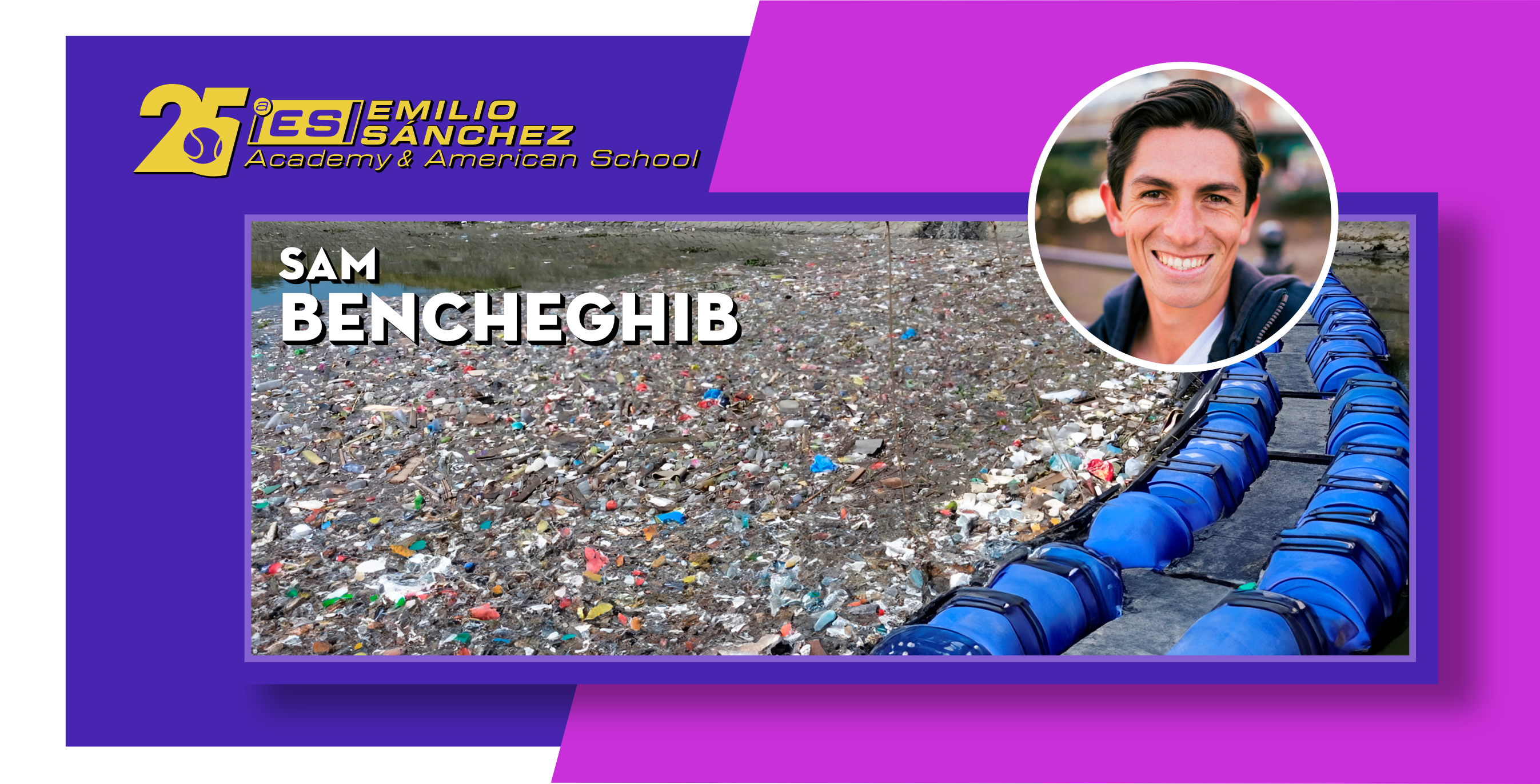
The path to success is paved with dedication, passion, and a spirit of service that transcends the boundaries of sport and embraces global causes. Sam Bencheghib, a former student-athlete at ES Tennis Academy and American School, embodies this philosophy in every step he takes. His story is an inspiration to all those who seek to make the world a better place while pursuing their dreams.
Sam’s name has recently resonated worldwide as one of the winners of the prestigious 2024 Elevate Prize, an award that recognizes visionary leaders who are positively transforming society and the planet. Sam has been honored for his remarkable work at Sungai Watch, an environmental organization he founded in 2020 to fight plastic pollution in the rivers of Bali and Indonesia.
Nonetheless, Sam’s journey started years earlier through his passion for tennis. He was a student-athlete at our Academy from 2012 to 2015. During that time, Sam stood out not only as a talented tennis player but also as a committed leader. His role as president of the student council in 2015 demonstrated his ability to inspire and motivate others to work together towards a common goal. He then pursued his tennis career at the collegiate level at LeHigh University, where he competed in NCAA Division 1 tennis for four years.
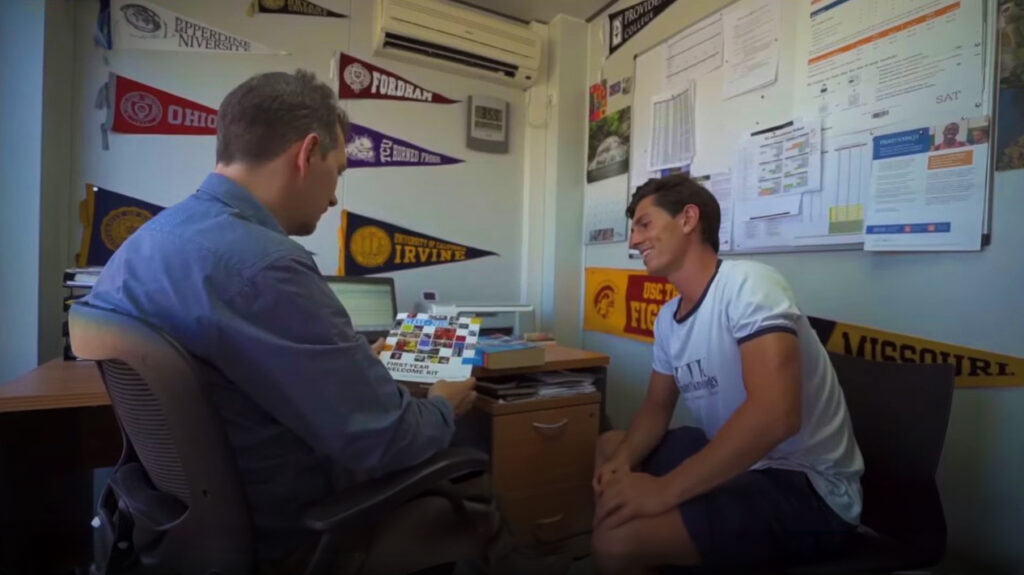
Sam had grown-up in Bali and had seen over the last decades the increase of plastic on its beaches and rivers. After graduating from college, he felt compelled to take action. He embarked on a series of impactful initiatives from establishing a media agency (Make a Change World), to launching the “Ocean2Ocean” expedition consisting in running 23 miles daily from New York to Los Angeles to raise awareness about plastic contamination, to founding an organization to clean-up rivers and oceans in Indonesia. Emilio Sanchez and Susana Zaragoza caught up with him to find out what he has accomplished in the past recent years and, and how, if at all, tennis has helped him achieve his goals. Here’s an excerpt from the interview, which you can watch in full in the video at the end of the article.
SZ: Sam, you were recently granted the Elevate Prize award for your contribution to the environment. Tell us more about what has been going on in your life in the past years.
SB: After graduating from ES Academy and School almost 10 years ago I attended Lehi University, a D1 University in Pennsylvania where I played tennis for four years. After that, I took a very different approach to most of my college friends who wanted to work in the business world. I told myself, “I’m not going to work in a bank, instead I’m going to run across America from New York to LA to raise awareness about plastic pollution”, which is a problem that I was seeing a lot in Indonesia, where I live and grew up. Since then, I have been dedicated to finding ways to combat plastic pollution, specifically the waste that goes into the ocean, because once there it’s very difficult to collect it and it breaks down into microplastics. It’s not just a problem for people who live on the coastline, but it also poses a huge health problem for everyone as we’re now eating up to the equivalent of a credit card of plastic every day.
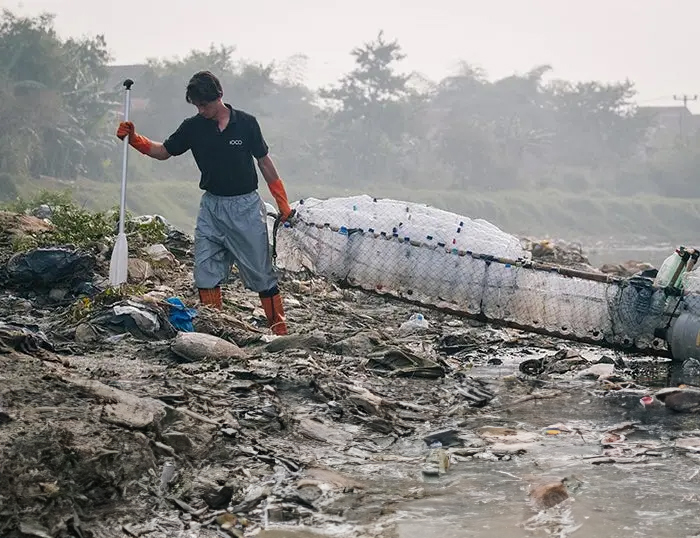
ES: Tell us about Sungai Watch.
SB: After running across the United States, I wanted to have a more on the ground impact. Back in Bali my siblings and I came up with a simple but very scalable and cheap solution to stopping plastics from entering the ocean. We installed one barrier next to my parents’ house and the very next day the trash was caught, we cleaned it up and stored it in our parents’ garage. Very quickly we saw the potential of the barrier and how efficient it was at stopping plastics from reaching the ocean and that’s how Sungai Watch was born. That one barrier quickly grew into two, five and three years later we have 300 barriers installed throughout Indonesia’s most polluted Rivers, with a team of 120 full-time staff cleaning rivers and collecting 3,000 kilos of plastic a day, 2 million kilos of trash since the beginning.
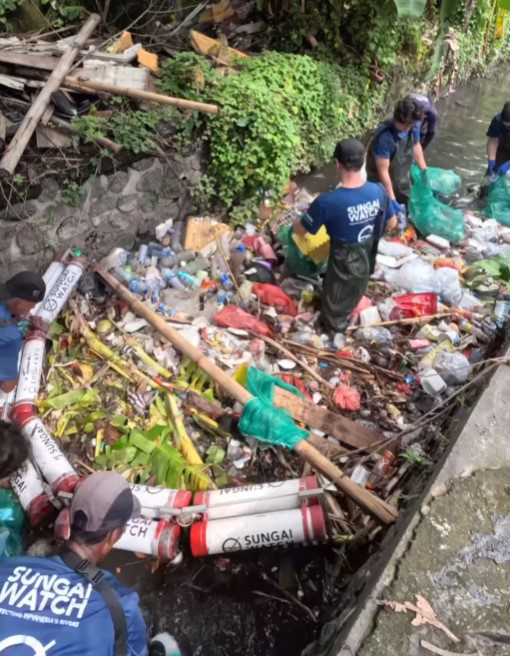
And even if we think that what we’ve done is great, it’s still a drop in the water. We’re in 2 islands in Indonesia, but there’s still 700 islands where people live as well as other countries that also need our help, so we’re looking for a solution to scale and grow. For now, we’re looking to expand to the most polluted islands in Indonesia, as well as to a second country, the Philippines. Our main goal is to fight plastic solution one river at a time and find ways to stop plastic waste.
At Sungai Watch anyone can sponsor a barrier, an individual or a country. Funding goes not only to the barrier and waste pick up, but also to the storage and treatment of the collected trash. One barrier costs $6,000 for the year. We send the donor a report of the amount of trash, which amounts from 2,000 to 50,000 kg a year.
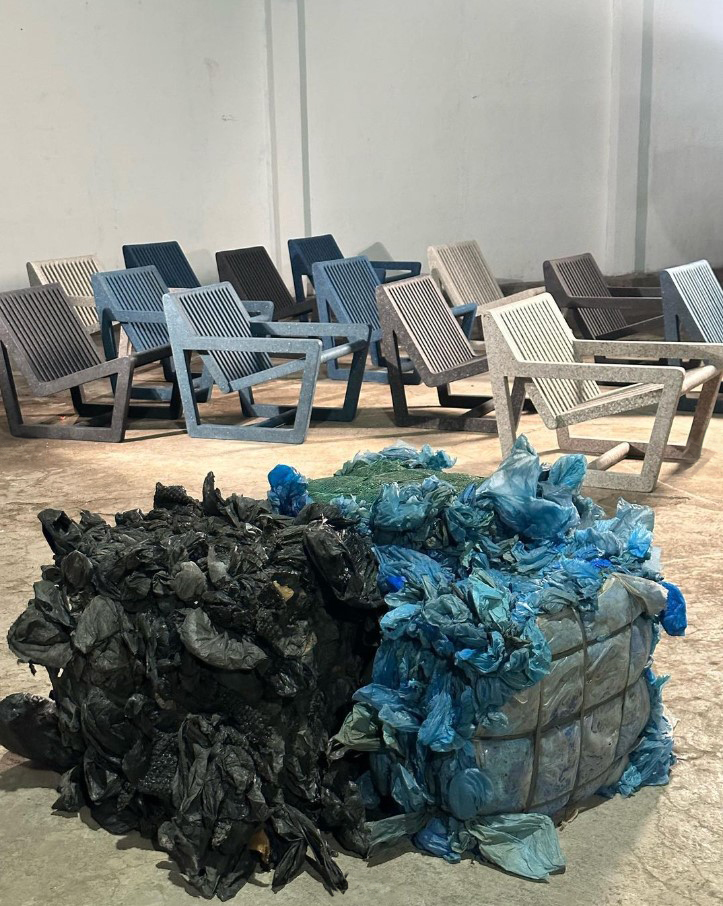
SZ: You recently started a new project related to creating furniture. Can you tell us more about it?
SB: Some weeks ago, we launched a new business to treat the amount of plastic we have collected, 2 million kilos of plastic sitting in our warehouses. The recycling industry in Indonesia is not very developed, and if plastic is not recycled it goes into the landfills and when it rains the trash goes back into the river, so it’s a vicious cycle. We have worked with engineers and scientists to work on a specific design to turn plastic into furniture. We’re working specifically with plastic bags, which is the number one pollutant that we find in the rivers, representing 36% of what we collect. We’ve focused on design and comfort, and we’ve launched the ‘Ombak chair’. Ombak means chair in Indonesian. One Ombak chair is made from 2,000 plastic bags.
ES: This failing and looking forward and failing and looking forward reminds me of something. Where is tennis in your life now? What memories do you have of playing tennis at our tennis academy, and now as an adult? You’re talking about resilience and fighting for a dream.
SB: Definitely. It’s very similar to playing tennis.
Tennis teaches you many things and probably an important one comes from losing. When you lose a match or you’re one set down, you have to sort out how to pivot, how to stay confident or look for new ways to beat your opponent. Now the opponent is plastic, and the challenge is how to combat it. It’s about finding ways of being resilient and thinking that no matter how many times you lose, you can still improve and there’s still ways to get better. It’s just a matter of looking inside of you and being persistent. Tennis teaches you that.
When you play tennis you’re by yourself, there’s a net in between you and your opponents and no one else is going to do it for you, therefore you have to be a fighter and keep going despite the elements in the way. Cleaning rivers is the same, sometimes there are crazy storms, the barriers break, but we need to find new ways and acknowledge that we might not be the best right now but that we’re doing something good and that’s what matters and to think that every day is a new day and we’re collecting 3,000 kg and the number is growing, and I think that tennis taught me that.
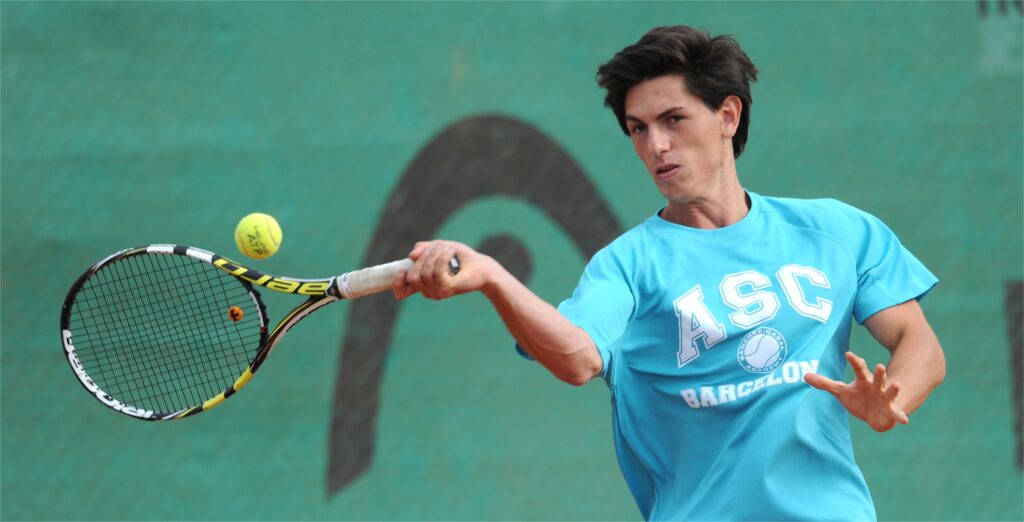
ES: We’re now celebrating our 25th Anniversary and you are one of our top success stories. What advice would you send to our student-athletes and to our network, most of whom are young tennis players, about your journey through tennis in high-school, college and now this huge match you’re playing?
SB: When I graduated from ES Academy and School my main thoughts were about how to get into the best University to play college tennis or how to become a tennis pro. Those were the best years of my life and made me realize that I had to do what I loved. My first match in college, I’m pretty sure I lost 60 61. It was the first time I was playing for a team and I was very nervous, but I got to realize that you get a lot better with experience. No matter how many times you fail, keep trying, keep looking for new ways to get better. And do what you love. Therefore, the best advice I can give is: “Be persistent, do what you love and enjoy the moment”.
ES: If you had to define yourself with a brief sentence, which would it be.
SB: We had a motto for a long time which was “No idea is crazy enough”. That was the slogan when I ran across the States. Therefore, if you have a crazy idea just do it and see where it takes you. I had one small crazy idea of putting a barrier in the river and it’s lead to this organization that I never thought it would become and we are cleaning rivers every day.
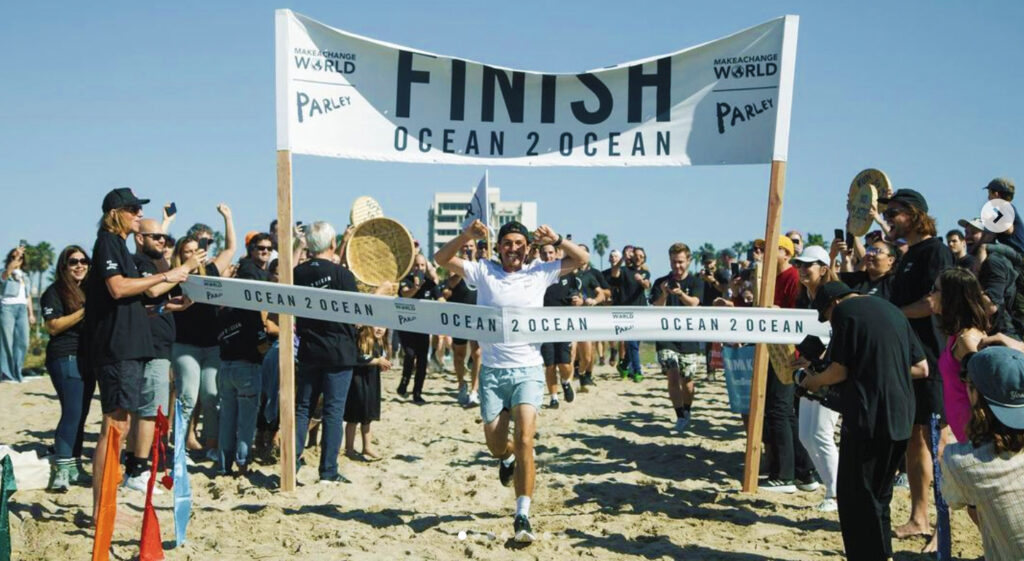
SZ: Would you like to close with a message to our ES Academy and School student-athletes?
SB: Enjoy the time that you have at ES Academy and surround yourself with people that can help you. You’re going to realize they will be the best years of your life. Find your passion and stick with it. It might be difficult at first, but when you throw yourself at something you’re passionate about, success will come. It will happen after a few years or if you’re lucky sooner, but I guarantee when you get to that point where you enjoy what you’re doing it is going to be very fun. I found out that cleaning rivers is what I enjoy.
This is only a summary of the interview we did to Sam, there are many more inspiring messages in the full interview. Do not miss it and watch the video below. Congrats Sam on your many accomplishments and best wishes for your future steps. We will be rooting for you!
By Emilio Sánchez Vicario, ES Academy CEO and Susana Zaragoza Añón, ES Academy Marketing Department















